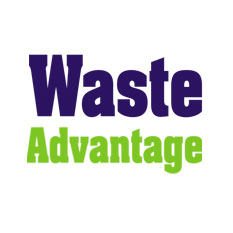Connecticut Enacts Battery Recycling Law to Reduce Fire Risk and Improve Public Safety
Waste & Recycling | 2025-06-19 00:05:11
Battery fires in the waste stream have caused damage, worker injuries, and operational challenges for local governments across the country.
SEATTLE (Waste Advantage): On June 10, Governor Ned Lamont signed House Bill 5019 into law, establishing Public Act 25-34, a statewide extended producer responsibility (EPR) program for batteries. The law requires battery producers—not taxpayers—to fund and manage a system for collecting and recycling batteries sold in Connecticut, reducing fire risks, protecting workers, recovering valuable materials, and saving municipalities and taxpayers thousands of dollars.
Connecticut now joins California, Washington, Vermont, Illinois, Colorado, Nebraska, and Minnesota in enacting an EPR law that covers both single-use and rechargeable batteries. The law applies to consumer portable batteries and medium format batteries, such as those used in devices like remotes, laptops, tools, e-bikes, and scooters.
“This new law provides the structure and support our communities need to responsibly manage the batteries powering our modern lives,” said Jennifer Heaton-Jones, Executive Director of the Housatonic Resources Recovery Authority. “Connecticut is creating a safer, more sustainable future for residents, workers, and first responders.”
Under Public Act 25-34 requires producers—via a battery stewardship organization—must:
- Fund the battery recycling system.
- Submit a state-approved battery collection and recycling plan to the Connecticut Department of Energy and Environmental Protection (DEEP) for approval.
- Provide free and convenient drop-off locations statewide.
- Ensure safe handling, transport, and recycling of batteries, including damaged or defective units.
- Conduct a coordinated statewide public education and outreach program.
An initial stewardship plan is due in 2026, with full program implementation required by January 1, 2027. “This law is a big win for the environment, public health, and municipalities across Connecticut,” said Tom Metzner, Environmental Analyst at DEEP. “We’re proud to be part of a national shift toward producer-funded solutions that reduce battery waste and fire risk.”
The Product Stewardship Institute (PSI) has worked with government and industry stakeholders for two decades to develop model battery EPR legislation that has continually expanded the range of battery types and chemistries covered. These efforts helped align stakeholder positions on battery EPR policy and fostered collaboration that has informed bills adopted in multiple states.
In 2014, PSI and the Connecticut Department of Energy and Environmental Protection jointly hosted a two-day national battery stewardship meeting that marked a pivotal moment in battery EPR policy. The hybrid event brought together 130 representatives from state and local government, battery producers, recyclers, and environmental groups. For the first time, battery producers—then represented by four separate associations—agreed to support a unified battery EPR bill.
During the meeting, PSI staff outlined key elements of model battery EPR legislation and led a multi-stakeholder dialogue that helped catalyze the nation’s first primary battery EPR law in Vermont in 2014, the first combined primary and rechargeable battery law in the District of Columbia in 2022, and every battery EPR law and bill that has followed, including the most recent law enacted in Connecticut.
“Connecticut’s new law is a result of persistent leadership and cross-sector cooperation,” said Scott Cassel, CEO and Founder of the Product Stewardship Institute. “That initial meeting in Hartford, Connecticut in 2014 was a turning point—setting the stage for the national momentum we’re seeing today.”
Battery fires in the waste stream have caused damage, worker injuries, and operational challenges for local governments across the country. EPR laws like Connecticut’s help mitigate these risks while supporting the recovery of valuable and critical materials such as lithium, zinc, cobalt, and manganese. The law adds to Connecticut’s strong record on product stewardship—it is the state’s seventh EPR law—and contributes to grow momentum among states for coordinated, producer-funded battery programs.
Courtesy: www.wasteadvantagemag.com
 By
By 